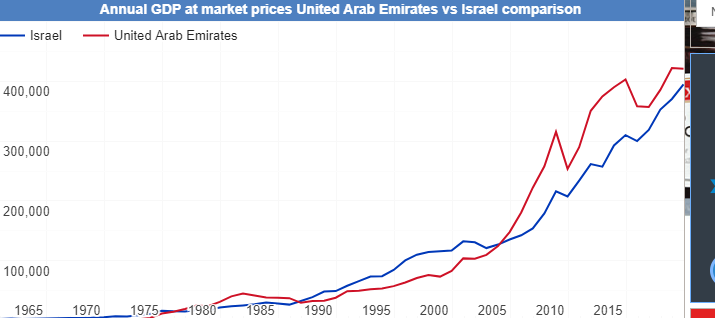Both the UAE and Saudi Arabia, two countries without
an issue of crude oil supply, are in an accelerated mode to embrace renewable
energy, something we never heard of, up until recently.
According to an article by Rystad Energy on
oilprice.com, the UAE hopes to increase the contribution by the renewables to
its energy needs to an impressive 21% by 2030; the UAE is rapidly expanding the
installation of solar panels in the desert to achieve the targets and unlike in
Europe, it’s a reliable renewable source to generate energy most of the year for
the region.
The article also highlights the impressive fact that
in the UAE, the consumers enjoy the lowest electricity tariffs in the world.
Having seen the article, I asked a friend of mine, who
is on the same wavelength when it comes to the subject, as to why these two
nations, with estimated vast oil reserves, embark on a highly ambitious
renewable mission: “Because, they will run out of it much earlier than they say
it will,” came the reply.
Of course, he was tongue-in-cheek.
Almost all the residents of the UAE have to use air-conditioning
all day throughout the year and the air pollution at the sources of power may
have become an unbearable burden on the country while meeting the exponential rise
in demand; the emission of the most hated gas, carbon dioxide and its
accumulation in the atmosphere on an uncontrollable scale does not help the UAE
– or any country in the region for that matter – in bringing down soaring
temperatures.
In short, it is a local, burning issue that got to
be addressed soon, apart from pledging to commit to achieving long-term global
goals.
In addition, the UAE is investing vastly on Carbon
Capture methods too.
Judging by these developments, the UAE and Biden
administration are on the same page when it comes to reaching the ultimate green
goal – a key promise by them that needs committed partners to implement.
Yet, the US under the new president is not keen on accepting
the UAE as one of their own: one of the first acts carried out by the new
administration is to block the arms sales to the UAE; then it wanted the UAE or
its proxies – along with other players – out of Yemen and Libya.
The UAE is the most progressive group of nations in
the Middle East; it defied critics and established full diplomatic relations
with Israel in August, last year, something unthinkable a year ago; people to people
contacts, despite the lockdowns, are growing rapidly; it wants to benefit from
Israel’s enviable technological feats; at culinary level, Abu Dhabi doughnuts
have already become a hit among the Israelis; in fact, the move by the UAE set
a precedent to other Arab nations in the region and some started to follow suit
by establishing diplomatic relations with the Jewish nation.
Moreover, the UAE recently relaxed its culture code as well, even allowing couples to cohabit – a serious diversion from the rigid, conservative norms; it now even offers citizenship for expatriates who meet certain requirements, having been residents for a certain period of time in any of its emirates.
These things do not happen suddenly like lightning;
a human being or a group of them have to initiate them, sometimes invoking the
wrath of the hardliners, in order to swim against the tide. In this context,
the Emirati rulers – and President Trump too – deserve the credit for making
history and turning the UAE into a tolerant society in a very volatile region,
where the combination of hatred and revenge is not in short supply.
When a journalist asked Benjamin Netanyahu, the beleaguered
Israel prime minister, about the potential repercussions of the UAE being
cold-shouldered by the US for the UAE-Israel deal, he said the deal was
irreversible; he may be right.
Despite the major diplomatic breakthrough, the military
involvement of the UAE - and the bombing raids – in Yemen is a disaster; you
can’t destroy a determined enemy by air raids alone; if the US has read the
riot act to the UAE over this, it is perfectly understandable.
However, maintaining usual relations with an important
ally and staying in the moral high ground are not mutually exclusive; a gentle
slap on the wrist must have sorted out the unacceptable things in order to keep
the alliance alive.
The UAE should be credited with what they deserve –
for the peace in the region and beyond.







